How My Tourism Business Survived COVID-19
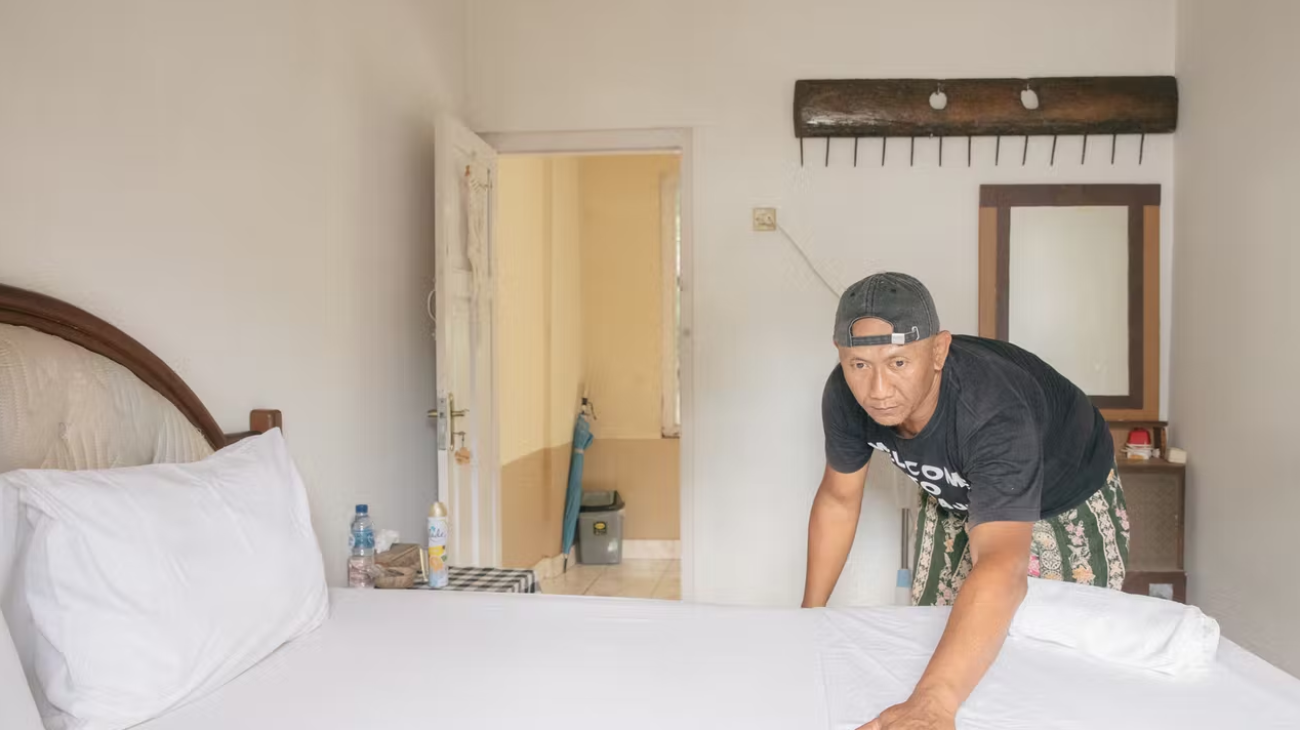
Dekha Dewandana is the co-founder of the village tourism group, Buleleng, Bali, Indonesia, and is the owner of Esa di Kubu Homestay in Sudaji Village.
My name is Dekha Dewandana, I’m 46 years old. I’m the owner of Esa di Kubu homestay in Sudaji Village, Buleleng, Bali, Indonesia. Despite the difficulties during the pandemic, I didn't give up. I followed what I was taught during the ILO training: to be the owner and host of our own village.
My career started in the tourism sector. I graduated from Bali’s tourism vocational school in 1997. Afterwards, I worked as a housekeeper on a local cruise ship for four years, before I found a job at a hotel in the capital city of Bali.
When my parents passed away, I followed their wish for me to take care of our family home in Sudaji Village.
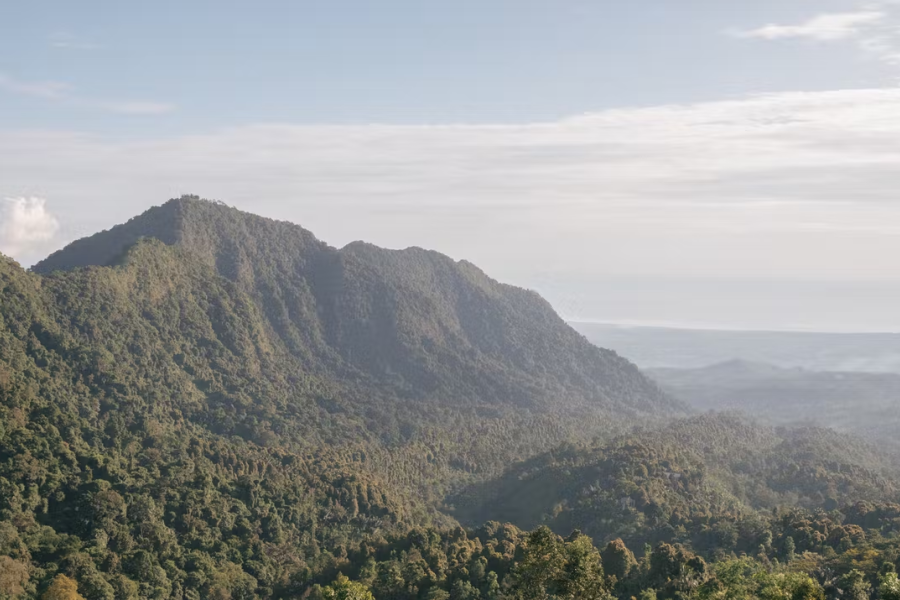
In 2014 I started to realise my dream to develop homestays for tourists in my village. The idea is to not build new houses, but to preserve old houses for tourism. I was fully confident that I could succeed, based on my tourism and hotel background. I observed the operations of homestays and learnt how to transform the house into a homestay.
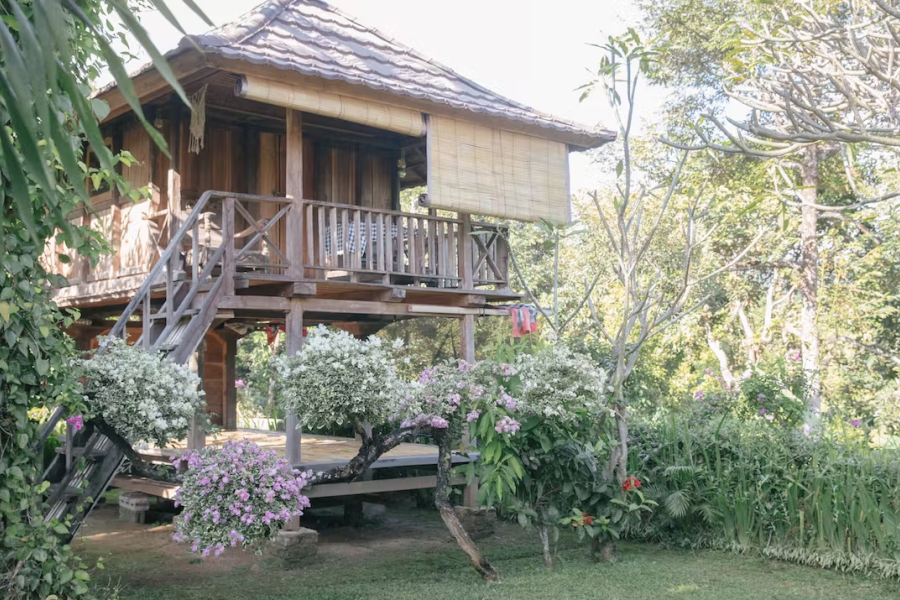
It was indeed a success. My homestay was chosen by the Bali Tourism Office to participate in community-based tourism at the national level, representing my village, and was awarded second prize.
Afterwards, the Bali Tourism Office recommended that I take part in the International Labour Organization's (ILO) Sustaining Competitive and Responsible Enterprises (SCORE) Hospitality Coaching (HoCo) organized by BEDO-Sampoerna.
I participated in the training programme from 2018 to 2019. We were taught and were helped to standardize our facilities and equipment according to The Association of Southeast Asian Nations (ASEAN) standards. We learnt about professional bedding, toiletries, food presentation, guest services and so forth. Every month, the BEDO trainer would coach and evaluate our progress.
The training also taught us the importance of digitalization and digital marketing. Since then, I began promoting my homestay online and as a result the sales and number of visitors increased.
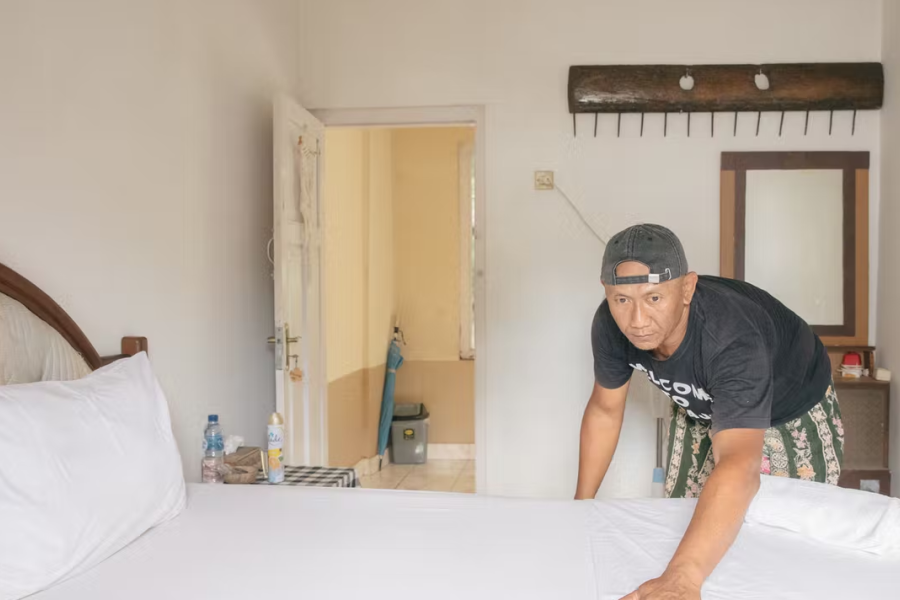
Then COVID-19 hit at the end of 2019. We started receiving cancellations from our foreign guests from January to February, and when the Indonesian government declared the COVID-19 pandemic in the country in March, we had only five guests left, who got trapped in Bali. We were all panicked and worried.
For the first four months, I used my savings to buy daily needs, particularly food. I bought as much rice and instant noodles that I could buy, as stores and markets were closed down. I could only survive for three to four months before using up all my savings. To get some income, despite the lock-down, I sneaked out and found my way to go to the nearby forest to get additional plants for our consumption and firewood that I could sell.
The worst period was the first seven months of 2021. We could only depend on the vegetable farms where we planted vegetables to survive. From January to July, I ran out of everything. My fellow villagers and myself barely ate.
I started to lose hope.
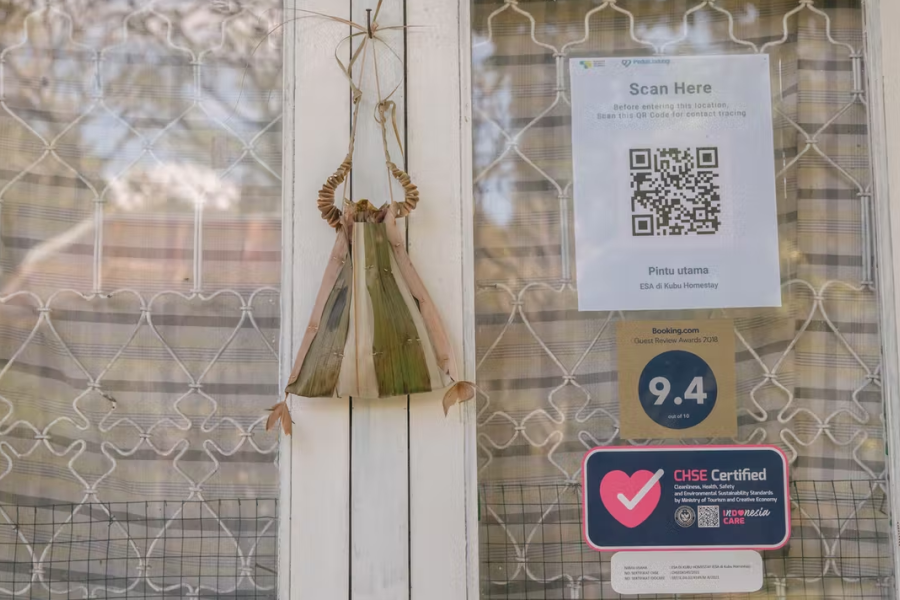
However, I knew that it was not only us who were suffering. Other family members and friends also lost their jobs and some even had nothing to eat.
I was contacted by my previous guests overseas, asking about my condition and offering some help, which I felt grateful for. This assistance helped my family survive until the end of 2020.
At the beginning of the pandemic, we received health protocol training from the ILO’s SCORE Hospitality Coaching. We were taught how to protect ourselves by maintaining physical distance, using masks, washing our hands and so forth.
Then conditions got better when the restrictions were lifted and we received assistance from the government. I never forgot about my dreamed homestay. I painted the house and used the supplies to fix parts of the house.
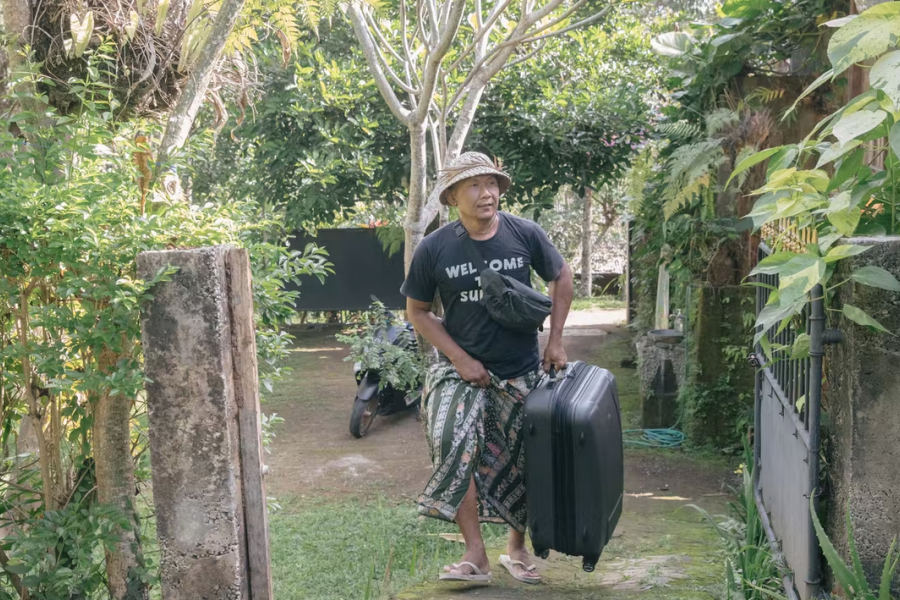
Starting in January 2022, the homestays in my village have received domestic and international tourists. My homestay has received a group of tourists from Denmark and Switzerland.
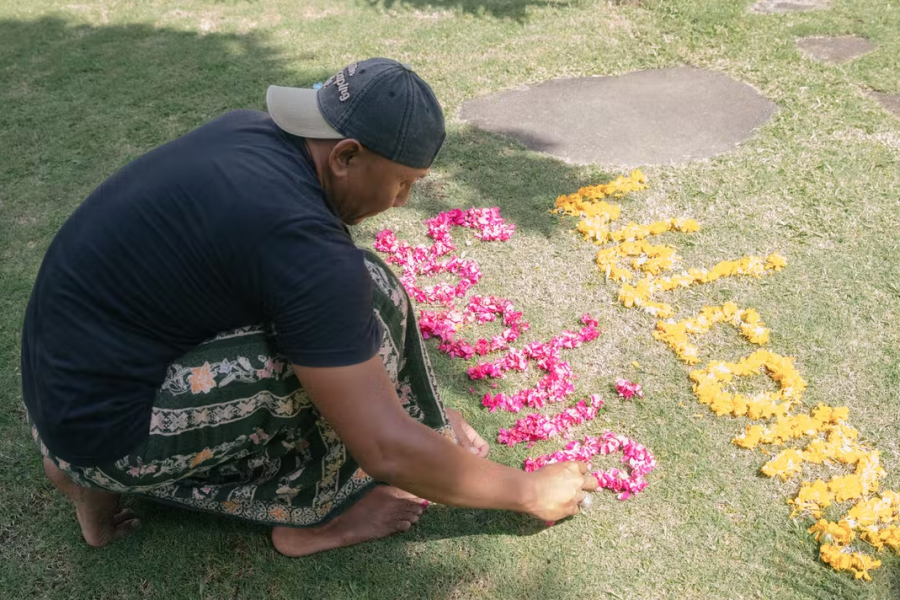
I am also the co-founder of Sudaji Homestay, a group for homestay owners who have been trained and facilitated by BEDO.
The aim of the group is to help each other so that we can maintain standards for our homestays. Not all the homestay owners can speak English or have an understanding about marketing and digital marketing. Through this group, we help those managing other homestays, assisting in marketing and teaching them about services.
I also help by sharing my skills and knowledge so that we can continue to maintain our reputation as a winning tourism village and so that my fellow villagers do not have to find jobs elsewhere. They can stay in the village and be the owner and host of our own village.
This is the concept that was taught during our ILO SCORE HoCo training: to be the owner and host of our own village.
***



